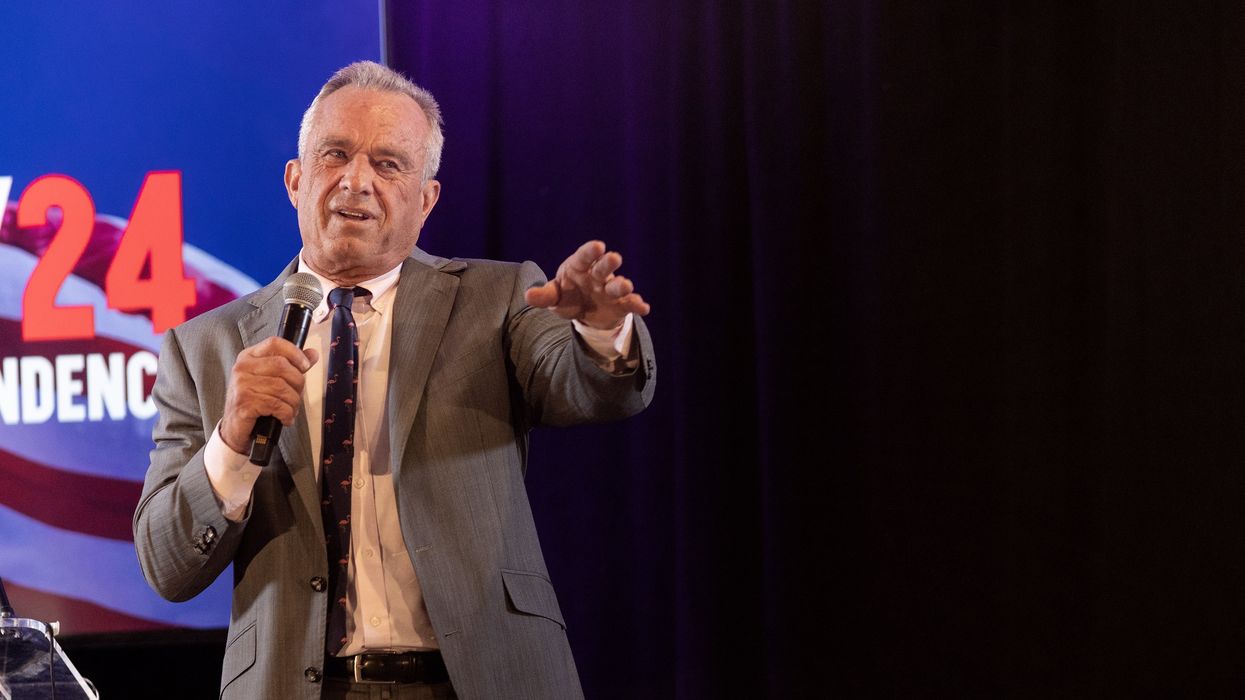Richie is co-founder and senior advisor of FairVote.
CNN’s presidential debate coincided with a fresh batch of swing-state snapshots that make one thing perfectly clear: Robert F. Kennedy Jr. may be a longshot to be our 47th president and faces his own controversies, yet the 10 percent he’s often achieving in Arizona, Michigan, Nevada and other battlegrounds could easily tilt the presidency.
Why did CNN keep him out with impossible-to-meet requirements? The performances, mistruths and misstatements by Joe Biden and Donald Trump would have shocked Abraham Lincoln and Stephen Douglas, who managed to debate seven times without any discussion of golf handicaps — a subject better fit for a “Grumpy Old Men” outtake than one of the year’s two scheduled debates.
Voters should be able to take the measure of someone poised to get millions of votes that could decide the race, and it’s not like Kennedy’s presence could have made the debate less substantive. Indeed, he might have filled in the debate’s gaps on issues like climate change, poverty and foreign policy.
The major parties can’t wish Kennedy — nor his impact — away. Even earning 5 percent of votes could shift the election. In every state but Alaska and Maine, candidates can win every electoral vote without a majority. A string of states could be won with barely 40 percent of the vote.
The major parties generally take one of two approaches to minor parties. They either cynically boost them when expected to hurt their opponent, as Donald Trump did when praising Cornel West and Jill Stein last month, or try to knock them off debate stages and ballots while shaming their supporters.
It’s playing with anti-democratic fire to simply write off Kennedy and other candidates. Imagine the rancor if the Electoral College is decided by a single state’s quirk – Georgia free-market backers leaving Trump for Libertarian Chase Oliver, or Arab Americans in Michigan abandoning Biden for Stein or West over the war in Gaza.
There’s a middle ground for 2024 debates — and a permanent solution offered by ranked-choice voting, which is being pioneered at the state level in Alaska and Maine.
Debates offer unique opportunities to educate voters, not just play to major-party campaign interests. Kennedy should have his shot at the September debate if he’s on the ballot in most states and polling in double digits. Trying to marginalize him will only feed his populist appeal. Biden and Trump should explain why they’re the better choice — not just against each other, but as compared to Kennedy and other candidates likely to earn millions of votes this November. Sunshine is always better for democracy than darkness.
Longer-term, the voters — and frankly the parties — should embrace our nation’s values of choice and majority rule. Increasingly proven in state and local elections, ranked-choice voting enables voter choice while upholding majority rule. If more states adopted RCV, there would be no reason to fear more choices on the ballot — which voters so clearly desire and, even moreso after this debacle of a debate. And there would be no reason to deny a podium to a candidate supported by one in every 10 voters.
RCV is simple. Voters get to rank the candidates in order — for example, Kennedy first and Trump second, or Kennedy first and Biden second. If someone wins over 50 percent of first choice votes, they’re the winner. But if no one claims a majority, the lowest candidates are dropped and an instant runoff ensues. If you ranked one of the top candidates first, your vote stays with them. If your candidate is eliminated, your ballot goes to your second choice.
Maine and Alaska will vote for president with RCV, ensuring a head-to-head final “instant runoff” no matter how many candidates make their ballots. In those states’ recent House and Senate races, third parties were welcome. The “spoiler” claim melted away.
The time has come for the rest of the nation to join them. Spoiler fears are hardly new — and given the widespread dissatisfaction and frustration in our system, it’s only likely to increase as a feature of our system in 2028 and beyond.
While so much of what ails our democracy feels hard to fix, we can cure the spoiler problem with common sense. Kennedy can debate and people can see him for themselves. And with ranked-choice voting, we can embrace greater choice and make this the last time “spoiler math” decides the White House.




















